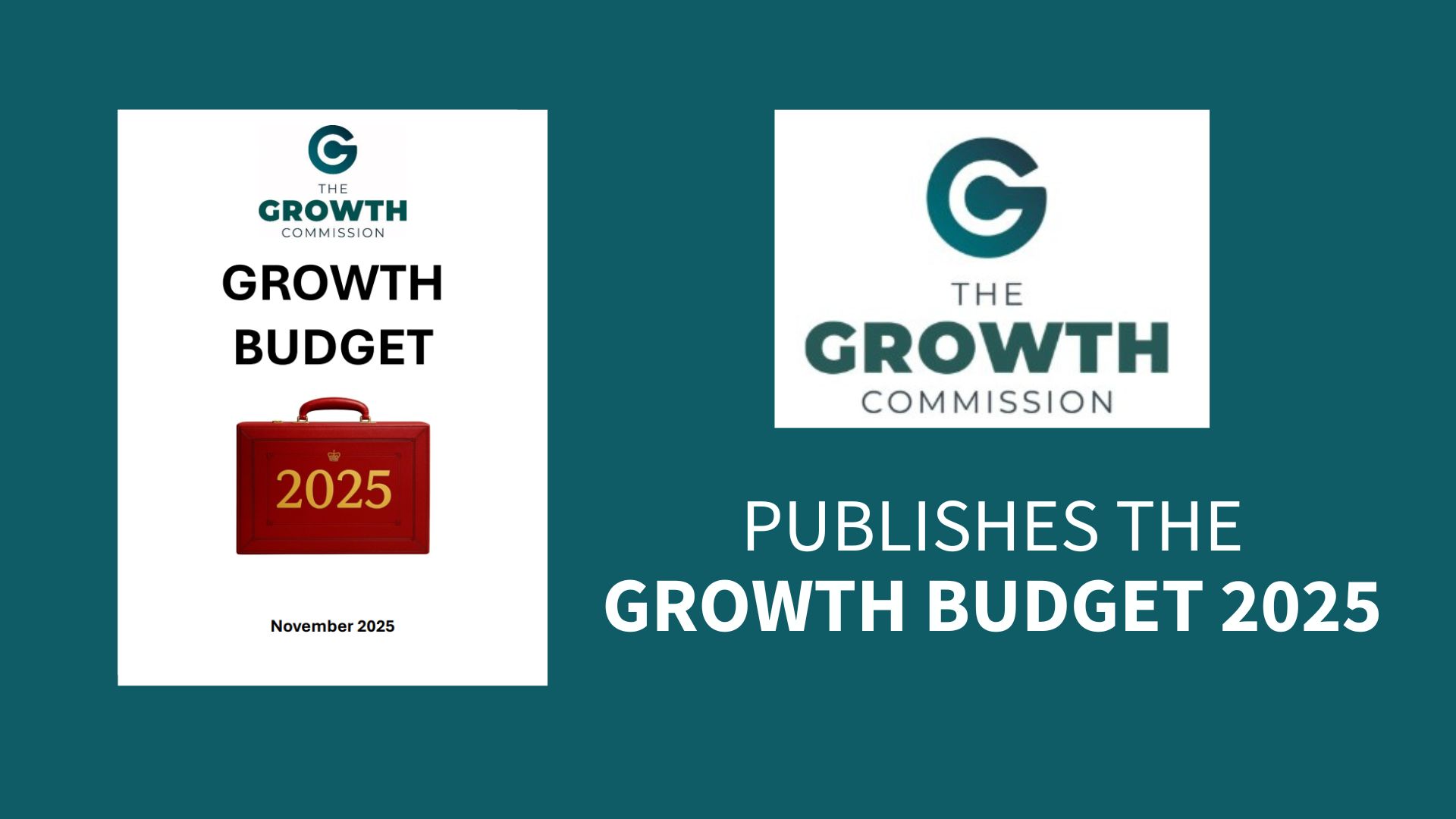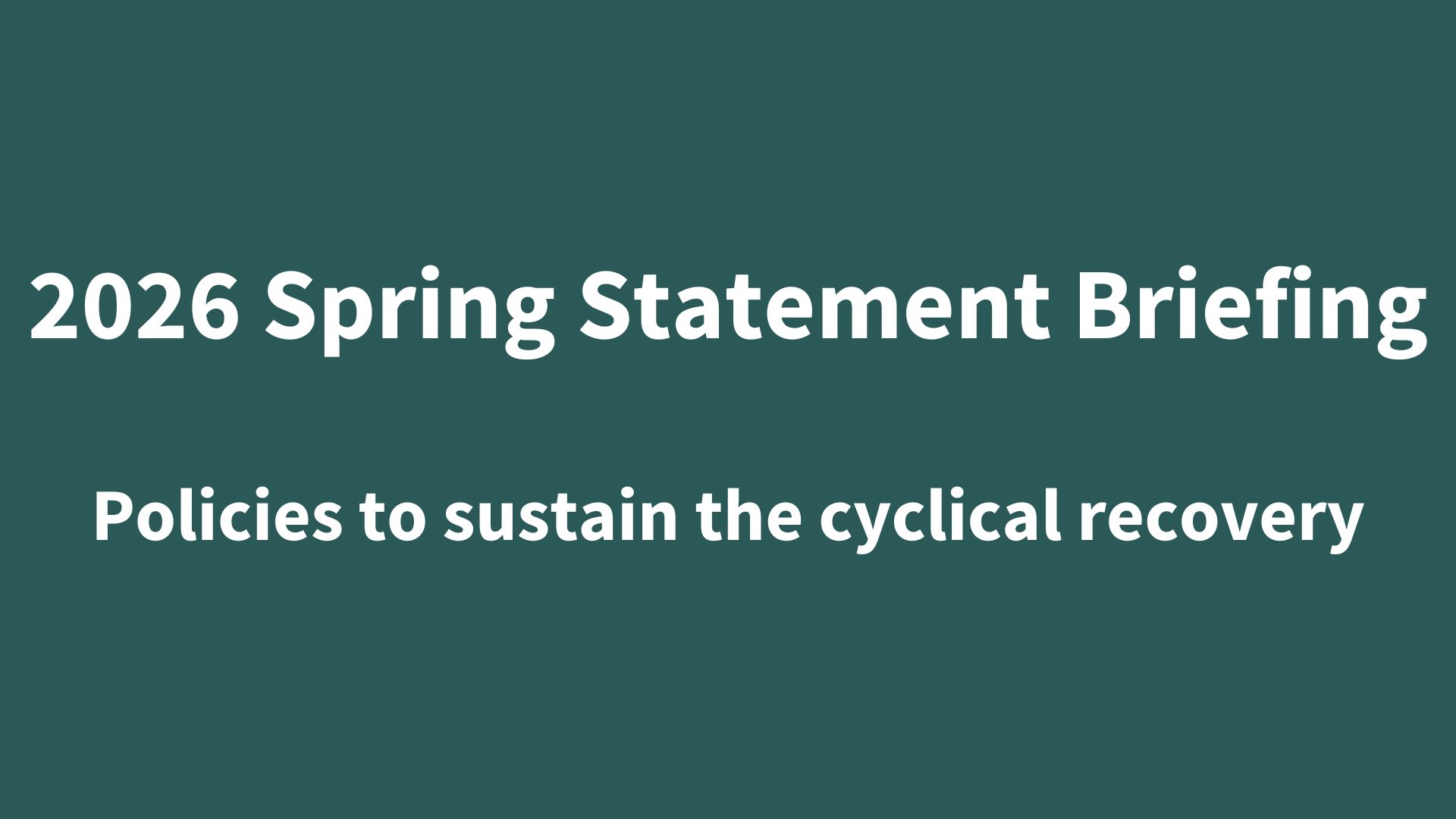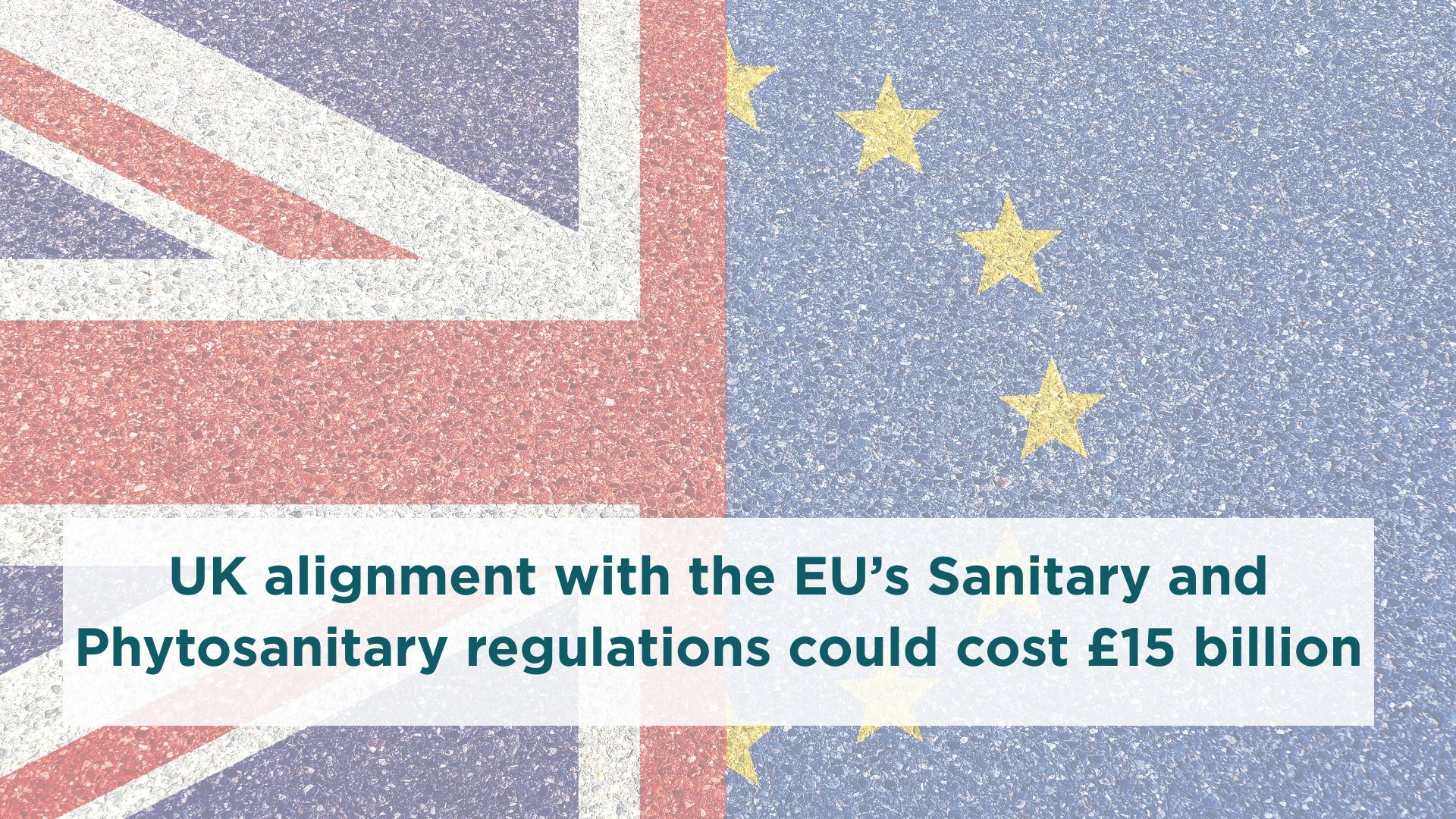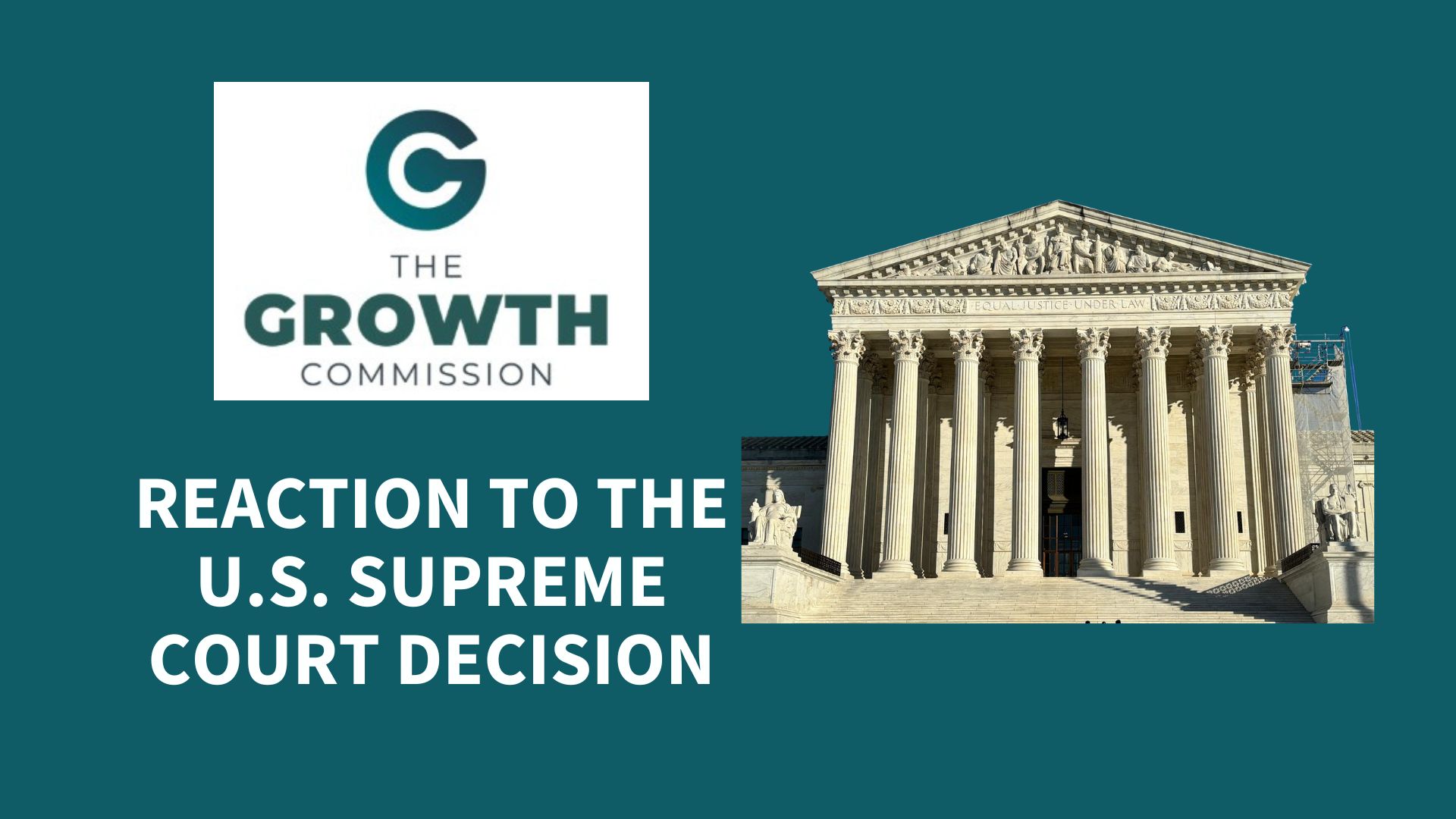
Rachel Reeves warned to cut spending and cut taxes if growth is really her top priority as Growth Budget 2025 is published
Rachel Reeves needs to cut public spending, reverse the revenue-losing tax rises she instituted last year and pursue significant supply side reforms if she is to reduce borrowing and deliver meaningful economic growth. That is the message contained in The Growth Commission’s Growth Budget 2025, published today ahead of next week’s Budget.
With the Prime Minister having stated that economic growth is the ‘number one priority’ of his Government, the Growth Budget 2025 – put together by the non-partisan group of leading international economists who form The Growth Commission – sets out a suite of policies calculated to boost GDP per capita over time, including:
Spending cuts
- Reduce staffing in central government back to 2015 levels over five years using AI and other productivity tools. This will mean the staff headcount being cut by one quarter, going from its current peak of 4,041,000 back to three million. We note that there is no evidence of a commensurate improvement in output or productivity to match what has been a huge increase in employee numbers over the last decade.
- Rein in public sector pay and pensions by bringing them more closely into line with those in the private sector.
- Control all forms of welfare spending by budgeting, by reintroducing in-person interviews, by creating paths back to work and health and by creating incentives to control spending.
- End the triple lock by linking the State Pension only to average earnings.
In total our proposals would cut government spending by £105 billion per annum by 2030 and we propose that about half the savings we have identified should be used for deficit reduction; the rest for cutting taxes.
Tax cuts
- Abolish Inheritance Tax, which our modelling shows would, within eight years, raise GDP and raise more revenue than the tax would raise. A number of other countries (like Austria, Norway, Portugal and Sweden) have in recent years abolished their inheritance taxes whilst others (like Estonia, Latvia and the United Arab Emirates) have never had them.
- Restore Capital Gains Tax to its pre-2024 level, which would provide an almost immediate revenue gain that builds up to more than a £50 billion annual gain over 20 years.
- Revert to the pre-2024 taxation regime for non-doms, which we calculate would boost GDP in 20 years by 2.3% and boost tax revenues by an annual amount building up to £65 billion over 20 years.
- Abolish stamp duty on share transactions and property sales, which would boost GDP by 1.4% by 2031, by which point the lost revenues from abolition would largely have been replaced by those from growth.
- Introduce tax incentives to encourage investment in new buildings by raising the 3% tax allowance currently available on non-residential buildings to 6% and introducing a 6% allowance on residential buildings. We estimate that this will deliver an ultimate boost to GDP of 1.9% and that the initial annual gross cost will be offset by tax gains from higher GDP within four years.
Supply side and regulatory reforms
- Replace the Climate Change Act and costly Net Zero programme with ‘Smart Net Zero’ where all actions are carefully cost-justified.
- Dramatically streamline the planning system, including setting up special planning zones where the presumption is that proposals will be approved. We also propose repealing various tax and legislative changes from the last decade that have targeted landlords and impacted the supply of rental housing, while also repealing the more onerous, flawed building regulations introduced following the Grenfell Tower fire.
- Scrap the Employment Rights Bill which we have calculated would lead to GDP per capita being between 1.4% and 2.8% lower within 10 years, leading to a loss of annual GDP of between £38 billion and £76 billion.
- Freeze the minimum wage until it again reaches 60% of the median wage (in line with international targets set by the EU and the trade union advisory committee to the OECD).
The Commission experts have used their bespoke economic models, which take into account the dynamic impact of policy changes, to calculate that, taken together, the proposals in the Growth Budget 2025 would boost GDP per capita by 2046 by 18.5%.
Growth Commission member Douglas McWilliams said:
“Rachel Reeves used her first Budget to add to the in-built public spending overruns while imposing capital taxes that have damaged the UK’s economic prospects and making other tax changes that have failed to increase revenues. The Growth Commission warned her against that course of action at the time, but she carried on regardless, resulting in an even bigger funding ‘black hole’ and a still stagnating economy.
“Next week’s Budget is the Chancellor’s last chance to make meaningful changes that will lead to a significantly growing economy before the next general election. She needs to reverse the most damaging of the tax rises from last year and rein in public spending as a matter of urgency. Given the starting position, the Chancellor is bound to be initially unpopular, whatever she does; but if she follows our advice, at least she has the opportunity to generate a growing economy and create increasing numbers of jobs.”
Growth Commission member Ewen Stewart added:
“The UK is sliding down the world league table of GDP per capita and unless the Government takes evasive action, we are set to be overtaken by Poland as soon as 2034.
“The economy is dramatically changing shape and we need the right policies in place to take advantage of the growth opportunities of AI. But while we remain saddled with uncompetitive energy costs, rigid labour laws and an incredibly onerous planning system, we remain at a distinct disadvantage.
“The Government urgently needs to address these issues – as well as creating incentives for people to work at a time when the number of working-age people not in employment is worryingly high.”
Growth Commission Chairman Shanker Singham concluded:
“Not long after taking office, Sir Keir Starmer identified economic growth as the ‘number one priority’ for his Government – and he was right to do so. But as is clear from the regular statistics issued from Whitehall, his administration has failed in its first year to kick-start growth as stagnation continues.
“Every decision by every minister and every government employee ought to be subject to a test of whether what’s under consideration will help or hamper the country’s economic prospects. In the final days leading up to the Budget, this should in particular be front and centre of Rachel Reeves’ mind: because all too often the demands of vested interests such as trade unions and the environmental lobby or the demands for tax hikes from economically illiterate activists have been prioritised ahead of economic growth by governments of all colours. I hope that our Growth Budget 2025 will provide some helpful inspiration for all those in the Treasury finalising the Budget.”
You can read the full report by clicking here.


